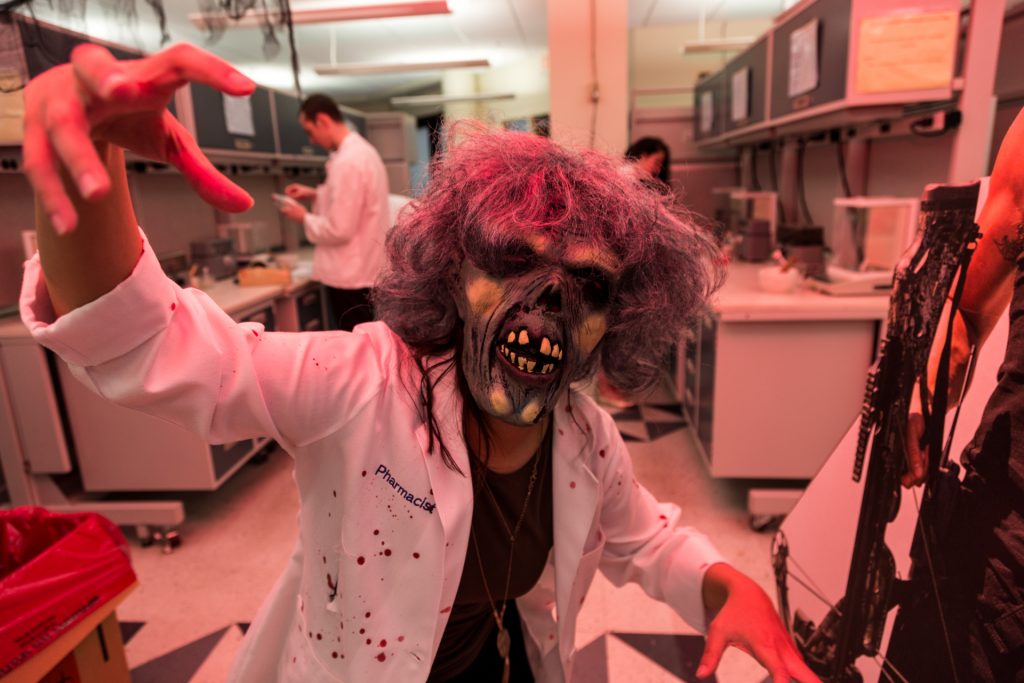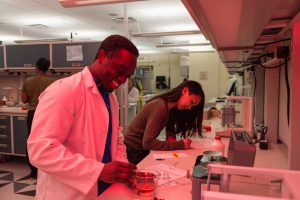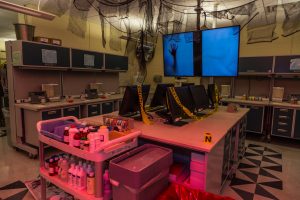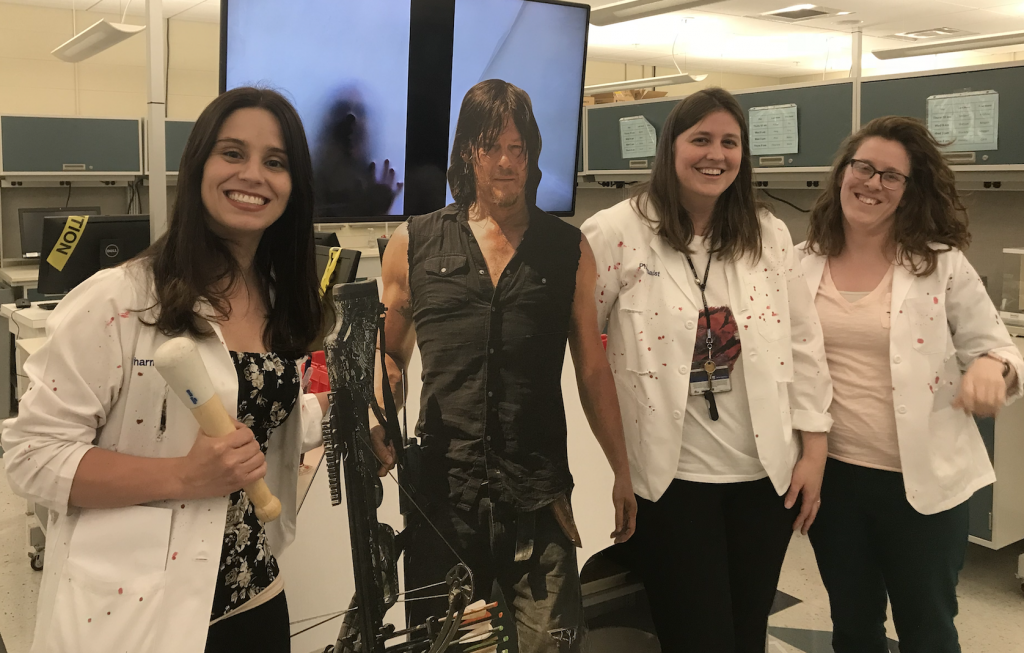Chemistry. Compounding. Zombies!

BY GREG WEATHERFORD
Director of Communications, VCU School of Pharmacy
Photos by Danny Tiet, VCU School of Pharmacy
Thirty students in VCU School of Pharmacy’s third-year elective on advanced nonsterile compounding recently got a crash course in doing work in difficult conditions.
Really difficult. Zombie-invasion difficult.
The goal for the Zombie Apocalypse Lab, which comprised two weeks of the course, was to give students an experience that would help them practice pharmacy during a natural disaster, power outage or similar scenario, said assistant professor Lauren Caldas, Pharm.D., one of the course leaders and creators.
“Instead of putting them into a situation that might have actually happened to them, like a hurricane or a war zone, we thought this would teach them the same things but in a fun way,” Caldas said.
Caldas dreamed up the zombie theme with her course co-leader, Abigale Matulewicz, Pharm.D., also an assistant professor in the school’s Department of Pharmacotherapy & Outcomes Science. Both are fans of “The Walking Dead” TV show and thought something like it would work as an entertaining framework for students to learn real-life disaster-relief pharmacy skills.
They found support from VCU’s Center for Teaching and Learning Excellence, which gave them a $400 grant to cover some of the startup costs.
Why would VCU pay money for an undead invasion? “It was a beautiful combination of advancing teaching scholarship with VCU students and an innovative approach to student engagement,” enthused Enoch Hale, the center’s director.
The lab wasn’t all about zombies. The first week gave students hands-on practice extracting active ingredients from natural products.

At Caldas’ and Matulewicz’s request, School of Pharmacy professor Michael Hindle, Ph.D., and one of his postdoctoral students, Xiangyin Wei, researched the anti-inflammatory and antiseptic components of yarrow, a flowering herb found across the United States, and developed a process to extract and analyze the healing components. Students in the lab spent a week using those extraction and analysis techniques on natural dried yarrow.
That’s when the zombies came in.
For the second week of the lab, the students were informed of the scenario, given a collection of scavenged supplies and limited tools — including plastic spoons and forks and 12-ounce soda bottles — and told to create a compound with procedures, documentation and proper labeling … all without using electricity or running water.
The lab room was decorated with zombie-themed props and imagery. (The decor was handled by assistant professor Krista Donohoe, Pharm.D.)
To make the scene even more fraught, the students’ work was interrupted by spooky banging noises and occasional marauding zombies — in reality a pair of fourth-year pharmacy students in masks and lab coats spattered with fake blood.

How did the students handle the zombies and the work?
“They loved it,” Caldas said. “They were so inventive with the compounds they created!”
Students went far beyond the requirements of the course. Several used the less-than-ideal equipment to create a functioning mouthwash that included a cherry flavor to make it more palatable to patients. Labels were written and applied by hand: “Even in the apocalypse, we have to document,” Caldas noted.
Luckily, all the students made it out of the Zombie Apocalypse Lab. This time.
The team plans to repeat the course next year.

